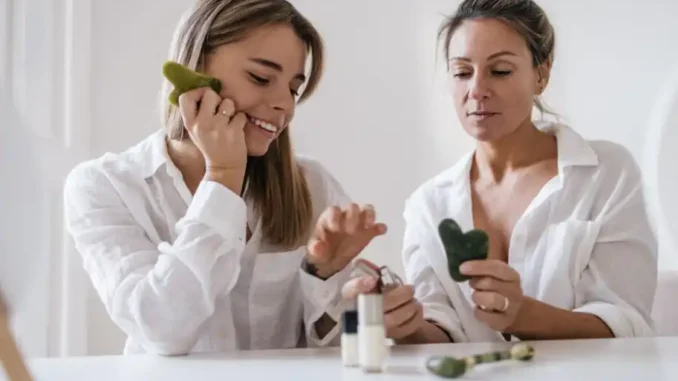
Hello Guys Welcome to this my blog today I am going to write a some Vegan Cosmetics: A Step-by-Step Guide Because it’s not just appearances that count: cosmetics without animal suffering – vegan and cruelty-free cosmetics. Unfortunately, there are even products containing mink oil on the market. Keratin, which is obtained from ground horns, hooves, feathers or quills, is also often found in hair care products. And someone who lives a completely vegan lifestyle would certainly not want any milk proteins, lactic acid or lactose in their cosmetics, in addition to these and many other animal substances, but these are not uncommon either. However, there are manufacturers who make their entire product range vegan. Other labels offer at least a partial vegan range. We have put together some examples of vegan products for you.
A related – and very important – topic is the question of animal testing, because what use is the most beautiful vegan cosmetics if animals were tortured in experimental laboratories to make them. You will find an extra box on this topic below.
Beware: The Most Dangerous Folk Cosmetics You Should Avoid
Here are some common features and benefits of vegan cosmetics
Animal-Friendly: Vegan cosmetics are not tested on animals and do not contain any animal-derived ingredients, making them cruelty-free. This aligns with ethical principles of animal welfare.
Plant-Based Ingredients: Vegan cosmetics typically use plant-based ingredients as alternatives to animal-derived substances. These can include botanical extracts, oils, waxes, and other plant-based compounds.
Environmental Sustainability: Plant-based ingredients used in vegan cosmetics can be more sustainable and environmentally friendly compared to animal-derived ingredients. Harvesting plant-based ingredients often has a lower environmental impact.
Allergen-Friendly: Vegan cosmetics may be suitable for individuals with certain allergies or sensitivities to animal-derived ingredients, such as milk proteins (casein), lanolin, or beeswax.
Health Considerations: Some people prefer vegan cosmetics for health reasons, avoiding potential allergens or chemicals commonly found in non-vegan beauty products. However, it’s essential to note that not all vegan cosmetics are necessarily safer or healthier than non-vegan alternatives, as synthetic ingredients can also present risks.
Animal testing in the cosmetics industry
Just over a year ago, in March 2013, the efforts of the European Coalition to End Animal Experiments (ECEAE) finally achieved the desired success after a long and rocky road: the ban on the sale of cosmetic products and cosmetic raw materials tested on animals came fully into force, i.e. the exceptions to the ban introduced in 2009 were abolished.
This means that new cosmetics for which or whose raw materials have been tested on animals may no longer be sold throughout the EU. It is important to note that raw materials used exclusively in cosmetics are exempt from the REACH chemicals regulation, which requires all chemicals to be registered and most of them to be tested on animals. However, the situation is different for raw materials that are also used elsewhere, so that even after the extended ban in 2013, there are still cosmetics in circulation whose manufacturers continue to use raw materials that have been tested on animals. It is also questionable whether all EU states are actually monitoring the implementation of the ban or.
Leave a Reply